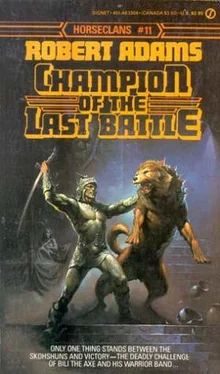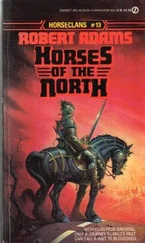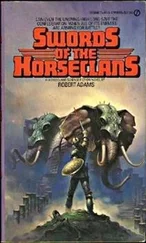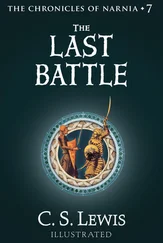For all his understandable impatience, the brigadier saw to it that Sergeant Winchel, who had commanded the advance observers, had a pint of foaming beer before officially rendering his report to the waiting knot of officers.
Still redfaced and streaming sweat from the long run in the heat of the sun, the broad-shouldered, thick-bodied man stood at rigid attention, his eyes fixed unwaveringly on a point directly ahead of him, and rendered his report in short, terse, toneless sentences.
“Sir! The enemy are all across the ford. There are three mounted units and one of foot. Only some half of the horsemen are heavy-armed ... ”
There were sighs of relief and a few exchanged grins amongst the officers at this, all silenced and wiped off by an imperious wave of the brigadier’s horny hand.
“I’ll have silence, gentlemen, if you please. We’ve damn-all time, as it is. Go on, sergeant.”
The sergeant continued in the same dehumanized voice. “There seem to be no bowmen or dartmen or slingers among the foot, and no horse-archers. The numbers of the horsemen are a total of fifty to fifty-five score; the foot are half that number or less.”
“Could you see any units that appeared to be dragoons—mounted men armed with infantry weapons, sergeant?” rasped the brigadier.
“Sir! A few, perhaps ten score, in the third mounted unit might have been such, but all in both of the leading units were cavalry—either heavy or light.”
The old officer nodded once. “Well done, sergeant. You may return to your unit. Dismiss!”
As the beefy noncom spun about and stiffly marched from the pavilion, the brigadier allowed himself the luxury of a thin smile beneath his drooping mustaches. “It would appear, gentlemen, that our old trick has worked yet again in the case of these New Kuhmbuhluhners. They apparently lack either the numbers or the weight to truly endanger us, and their leaders were obviously so stung by the cunning words of our herald that they put their brains and war sense up on the shelf and left all their missilemen at home.
“If God so wills it and all goes well, goes as I planned it, our arms should win us a new homeland, this day.
“To your commands, gentlemen. The foe is in sight!”
Although Bili of Morguhn had no way of knowing it, while Skohshuns and New Kuhmbuhluhners faced each other across the expanse of that narrow mountain vale, far and away to the southeast, three men squatted around the dismembered remains of a serpentine creature and conversed, while constantly waving at the hordes of buzzing flies that shared their interest in the decaying flesh.
Dr. Mike Schiepficker laid aside a four-inch scalpel and whistled soundlessly through clenched teeth, then addressed the man across the table from him. “Well, you were right about its being no reptile, Jay. In close to a thousand years of off—and-on study of zoology, I’ve never seen or heard of any reptile this primitive. But it’s no worm either, despite outward appearances; no worm has a bony spine or such well-developed internal organs. Offhand, with only the dissection of this single specimen behind me, I’d say it is an amphibian.”
The other man’s eyebrows rose sharply in disbelief. “An amphibian, Mike? Three meters long? And we’ve killed even longer, bigger ones before you got up here. I’ve been around for as long as you have and I’ve never heard of any amphibian this size. Not even half this size.”
Schiepficker nodded. “Then you never saw or heard of the Japanese giant salamanders? They ran to lengths of just under two meters, very broad and stocky and heavy, too; heavier by far than this beast was. And this thing’s ancestors did have legs. Look here, see that small, flat bone? That is an atrophied scapula—a shoulder blade. And back here ...” He moved down the table and utilized two pairs of forceps to spread the lips of the incision that ran the length of the long, slimy body. “See that? And those? They’re what’s left of a functional pelvis and the bone structure of rear legs. This creature’s very distant forebears may very well have looked a great deal like salamanders.”
“That still doesn’t answer the main question, Mike. Just what is this thing? A mutation of some sort, as David—Dr. Sternheimer—thinks?”
“No, I don’t think so, Jay. There once was fair evidence that something the descriptions of which sounded amazingly like this inhabited certain portions of Europe—the Bavarian Alps and Sweden, as I recall. The Germans called it a Tatzelwurm, I believe, saying they inhabited caves, mostly. But not much was known of the beasts, as I say. And I never heard even rumors of anything like them in the Western Hemisphere.”
“You say these are scavengers, basically?”
The second man nodded. “The first things we noted when we began to uncover the remains buried when that line of cliffs collapsed were that every trace of flesh, skin, cartilage and the smaller bones were gone and even a good bit of the cured leather, while the larger bones and bits of wood or metal to which leather had been attached were scored with scrapes and deep gouges. The peculiar teeth of the first of these things we killed fitted some of those scrapes and gouge marks perfectly, Mike.
“But I think they’re predators, too. I know damned well they’re vicious as all hell and next to impossible to kill without virtually blowing them apart. And any bite they deliver always results in a serious infection.”
Schiepficker shrugged. “That’s often true of the bites of flesh-eaters, Jay, most especially of those which indulge principally in carrion. Not that I’m necessarily ruling out the possibility that the creatures are venomous; it’s a trait that many amphibians have, after all. Some kinds of toads used to be boiled down and rendered into arrow poison, you know.
“Well, if you and your man there will assist me, I’ll get the still-intact parts of this specimen into the preservative before this heat rots it any further. I’d like to have two, maybe three, more of the critters to take apart, but don’t detail any men to hunt them out until you get as much of that salvage work done as is possible. You know how important Dr. Sternheimer considers the primary mission of your present expedition to be, Jay.”
General Jay Corbett did indeed know. This was his second attempt to bring back to the J&R Kennedy Research Center the packloads of millennium-old artifacts which the labors of his current command were slowly recovering from beneath the untold tons of shattered rock—books and technical manuals and schematics, dismantled machinery and electronic equipment and spare parts, miles and miles of wire of differing gauges and resistances, transistors, silicon chips and a vast multitude of items the uses of which he could only guess. And that was not even mentioning the precious metals—gold in both coin and bars, silver, several kilos of industrial diamonds, leaden containers of radioactive substances, a few flasks of quicksilver, five kilos of platinum and smaller amounts of other, much rarer metals.
Two years before, Jay and two of the Center scientists—Drs. Erica Arenstein and Harry Braun—their minds transferred into Ahrmehnee bodies, had journeyed far northeast, into the Ahrmehnee stahn, to rouse that entire fierce race into a full-scale invasion of the western thoheekahtrohnee —or duchies—of the Confederation, as part of a centuries-old scheme to so weaken the upstart Confederation as to allow the Center to reestablish the United States of America, of which long-defunct political entity they considered themselves to be the last legitimate portion.
While on a related mission into the Hold of the Maidens of the Moon Goddess—a race of warrior-women distantly akin to the Ahrmehnee—Dr. Arenstein had discovered that not only was the Hold squatting atop a barely quiescent volcano, but that the side of the mountain was honeycombed with caves, many of them far too regular in form to have been natural in origin, and that these caves were the repository of a hoard of items of twentieth-century technology, more precious than rubies to the Center.
Читать дальше












